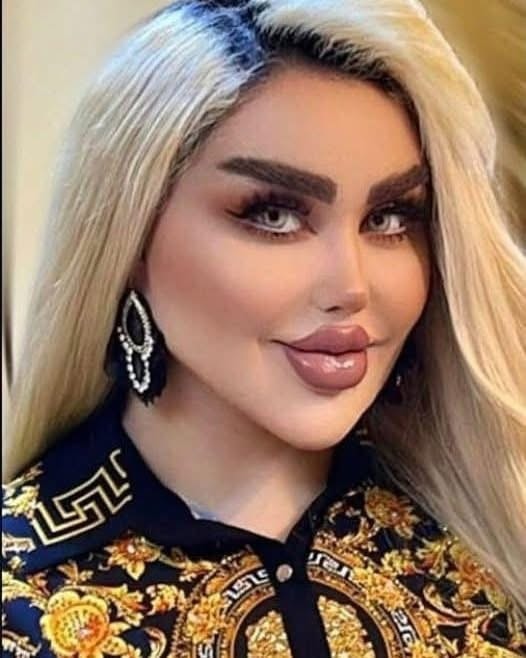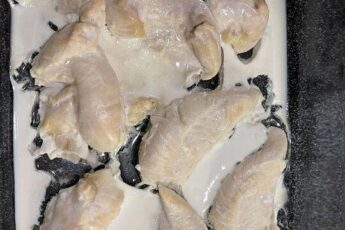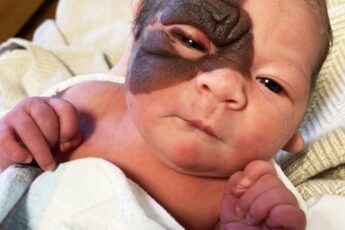Dalia Naeem, a 29-year-old actress and television presenter from Baghdad, has captured international attention with her dramatic transformation—one that she describes as her own version of a real-life Barbie doll. Her journey, which includes an astonishing 43 cosmetic procedures, has ignited both fascination and fierce debate across social media. While her fans lovingly refer to her as the “Iraqi Barbie,” others have responded less kindly, criticizing her for what they see as an extreme and unnatural appearance.
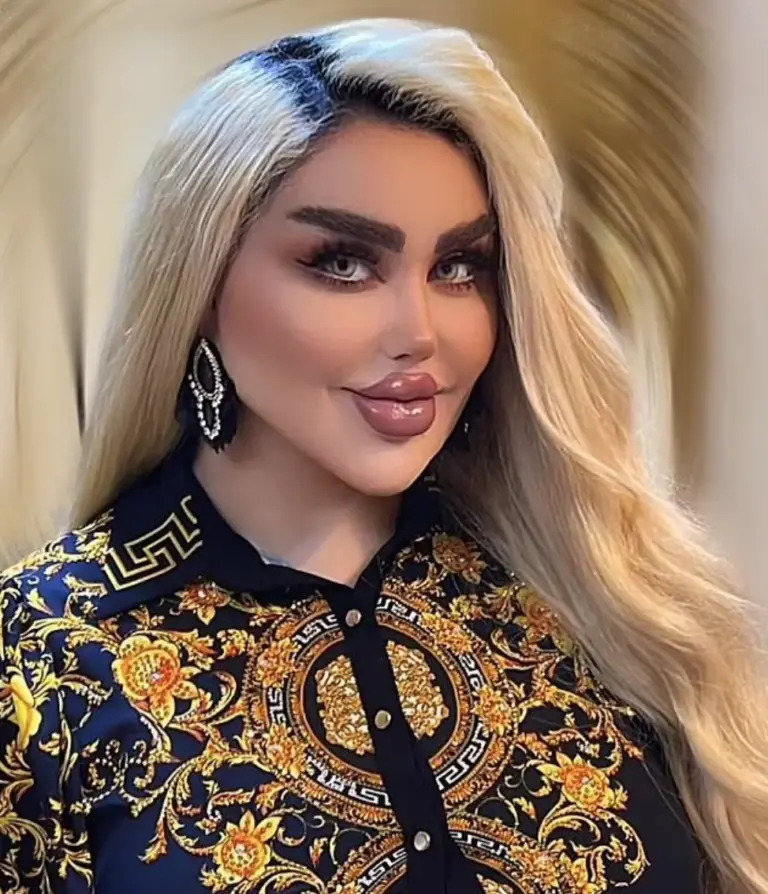
The path Dalia has taken toward her Barbie-inspired aesthetic has been anything but subtle. From lip fillers and breast augmentation to more complex facial enhancements, her appearance has undergone a complete metamorphosis. Each procedure has been a step closer to her personal vision of beauty—one inspired by the doll that has captivated generations around the world. The transformation is striking: she now sports long, voluminous golden hair, exaggerated makeup, a tiny nose, and full lips, all of which contribute to her signature doll-like look.
In a recent video posted online, Dalia can be seen posing confidently while her makeup artist, clearly impressed, tells her, “You look so beautiful, my dear. Like Barbie.” Dalia, with a playful smile, responds by pointing to her face and saying, “Your makeup is Barbie,” giving credit to the artistry that enhances her bold look. This exchange highlights not only her satisfaction with her appearance but also her confidence in owning it.
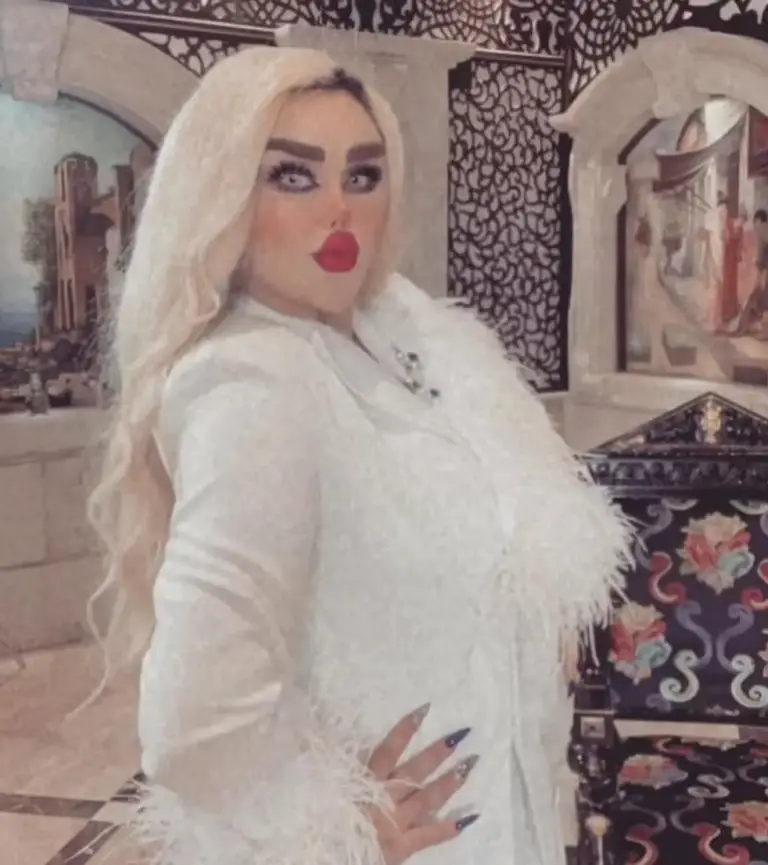
The reaction to Dalia’s transformation has been polarizing. On one side are her admirers—people who celebrate her courage to reshape herself according to her own desires. With nearly a million followers on Instagram and thousands more on TikTok, she’s built a sizable and devoted audience. Her content ranges from glamorous photoshoots to behind-the-scenes glimpses of her daily life as a media personality in Iraq. The comments from supporters often praise her beauty, uniqueness, and fearlessness in defying conventional norms.
On the other side of the spectrum, however, are those who express concern or even contempt. Critics have labeled her with harsh nicknames like “Zombie Barbie” or “Devil Barbie,” pointing to what they see as the unnatural outcome of excessive cosmetic intervention. Such labels reflect a broader cultural conversation about plastic surgery, body image, and the sometimes-blurred line between self-expression and self-erasure. While some accuse her of promoting unattainable beauty standards, others worry about the mental and physical toll such transformations can take.
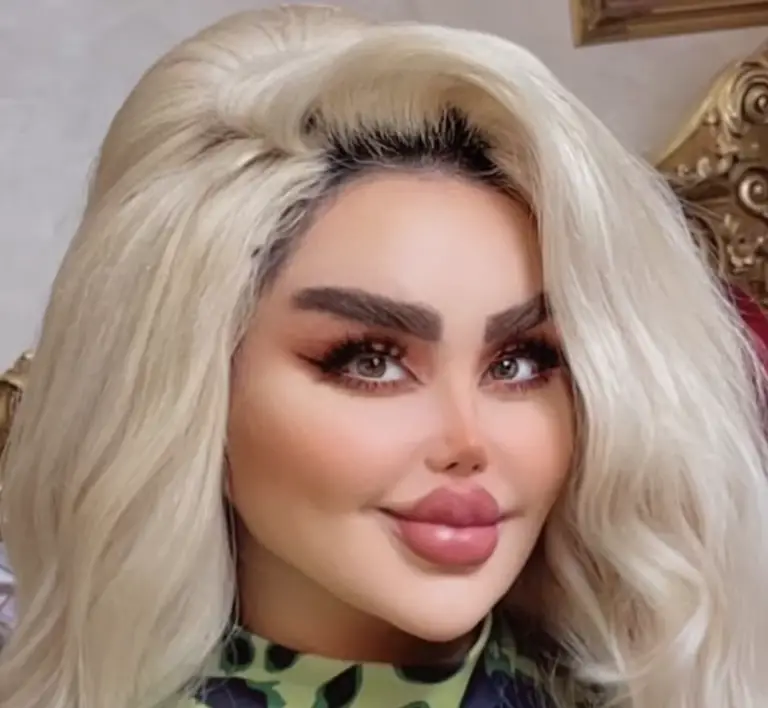
What makes Dalia’s story even more compelling is the stark contrast between her current appearance and how she looked before embarking on this transformation. Photos from earlier in her career show a naturally attractive woman with soft features, dark hair, and a far subtler look. These before-and-after comparisons have circulated widely, often sparking heated conversations online. Some users express sadness over what they view as the loss of her natural beauty, while others argue that she should be free to alter her body however she pleases.
Despite the mixed feedback, Dalia remains unapologetic. Her social media presence is not one of defensiveness but of bold self-assurance. She continues to share photos, videos, and thoughts with her audience, offering glimpses into both her public persona and personal journey. As an actress and TV host, she has carved out a place for herself in the Iraqi entertainment industry—an achievement that many would find difficult under such intense public scrutiny.
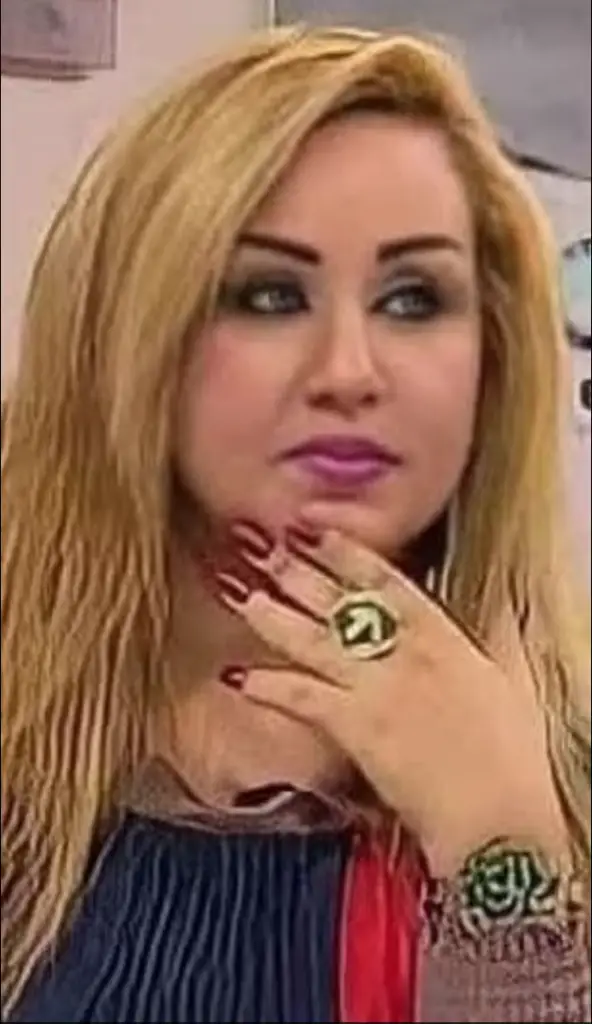
At the heart of Dalia Naeem’s story is a larger debate—one that goes beyond her individual choices. Her transformation raises questions about the role of cosmetic surgery in modern society, the pressures of social media perfection, and how beauty is defined and redefined in different cultures. Is Dalia simply embracing a form of artistic self-expression, or is her transformation a symptom of a culture that increasingly prizes appearance above all else?
Whatever one’s opinion may be, Dalia’s impact is undeniable. She has become a symbol—both admired and critiqued—of a global trend where beauty is increasingly shaped by personal vision and technological possibility. Her journey is a vivid example of how far someone can go in the pursuit of a dream image, and how complex the world’s reactions can be in return. Whether you see her as a bold icon or a cautionary tale, Dalia Naeem has made sure she won’t be forgotten.
Please SHARE this article with your friends and family on Facebook.
